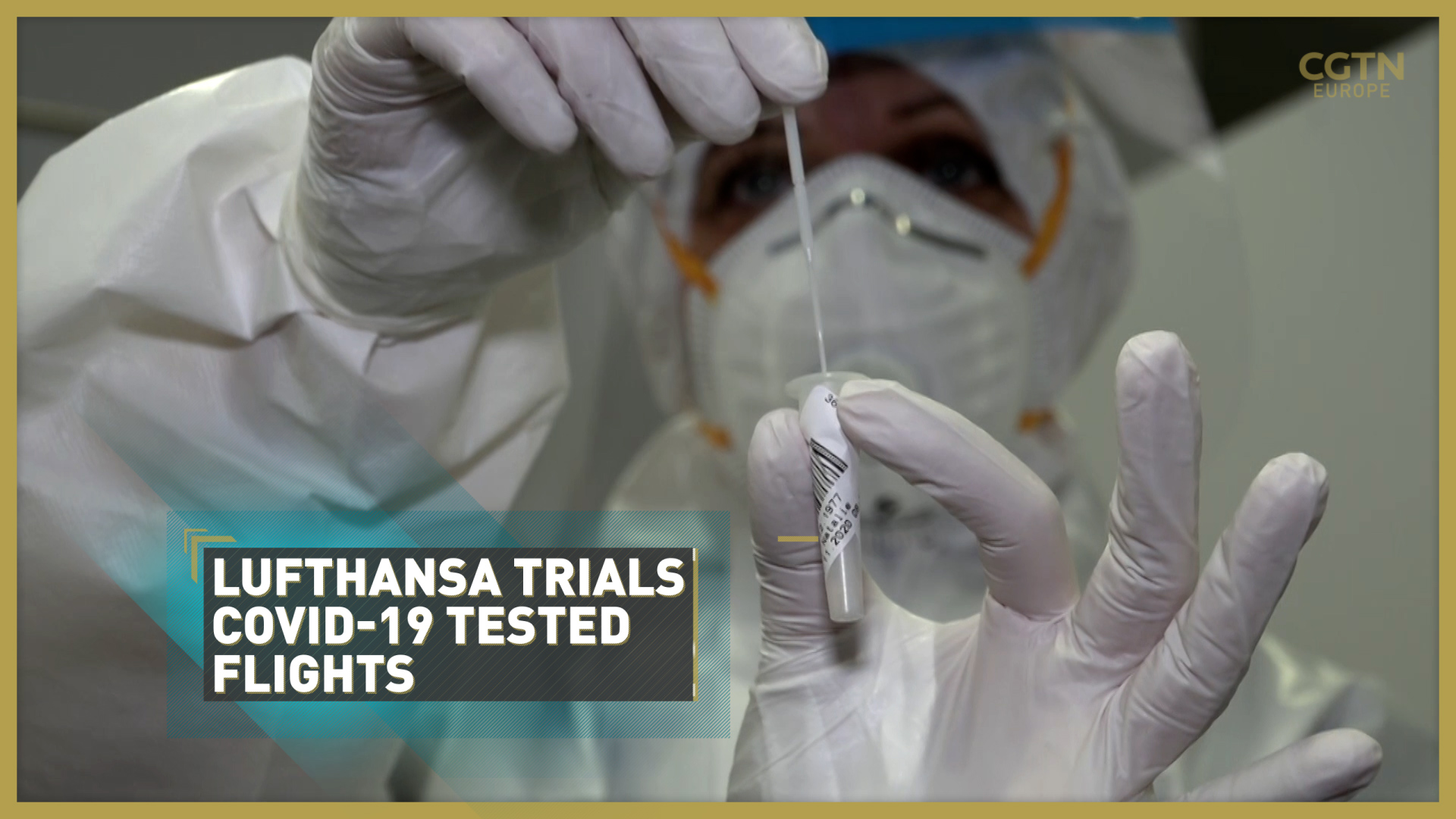03:17

True to German punctuality, flight LH2058 pushed back from the gate at Munich Josef Strauss airport at exactly 9:11 a.m. bound for Hamburg.
This was Lufthansa's first fully COVID-19 tested flight, meaning prior to boarding all passengers and crew tested negative for the virus.
This flight is part of a trial program conducted by Germany's largest airline, Lufthansa, for which it has teamed up with biotech company Centogene and MVZ Martinsried to offer free rapid antigen tests at the airport with results available within the hour.
According to Chris Leffers, the head of corona testing at Lufthansa, the objective is to make traveling easier amid global lockdowns to curb the coronavirus pandemic.

"Currently, flying is very restricted by quarantine regulations and travel restrictions," he said. "We do believe that testing is a possible alternative to quarantine regulations. Therefore, we started our journey towards a testing regime within Lufthansa Group to show and to prove that there is an alternative way of safe travel."
Lufthansa has purchased 250,000 antigen tests and set up testing sites at selected airports for passengers booked on COVID-19 tested flights to receive a quick swab of the throat prior to take-off.
Alternatively, passengers can present a negative PCR test conducted in the preceding 48 hours or be transferred to another flight free of charge.
Passenger Wolfgang Kogeisl says the testing gives him comfort.

Lufthansa has trialled its first fully tested COVID-19 flight, meaning prior to boarding all passengers and crew tested negative for the virus. /CGTN
Lufthansa has trialled its first fully tested COVID-19 flight, meaning prior to boarding all passengers and crew tested negative for the virus. /CGTN
"When you get a negative result and know that the other passengers are also negative, then it is a good feeling in the plane."
Fellow passenger Yannis Grothelueschen also likes the idea of tested flights, despite having to be at the airport slightly earlier to get his free test done.
"Being on this flight feels more secure. If that's what it takes, then maybe it's what we all need to do."
Regaining the confidence of the travelling public is the purpose of the operation, according to Munich airports CEO Jost Lammers.
"The test run with the rapid antigen tests on selected flights is a positive and important signal for the industry," he said. "After the extensive hygiene measures airports and airlines already implement, these tests offer an additional measure of security.
"If appropriate international agreements are made, this could lead to cross-border travel becoming possible again without a quarantine obligation."

Rapid antigen tests take just 15 minutes to deliver a result, but doctors have warned that they are not as accurate as PCR tests, which take at least 90 minutes. /CGTN
Rapid antigen tests take just 15 minutes to deliver a result, but doctors have warned that they are not as accurate as PCR tests, which take at least 90 minutes. /CGTN
The Lufthansa Group, which also operates several other European airlines, announced a third-quarter net loss of $2.4 billion and a difficult winter lies ahead, with only 25 percent of normal capacity operating this fall.
The pandemic has pushed the entire global aviation industry into its worst crisis ever with a recovery to 2019 levels not expected before 2025.
Yet, while these rapid antigen tests are convenient, they are not as accurate as PRC tests, says MVZ Martinsried laboratory doctor Hanns-Georg Klein.
"The rapid test is a lateral flow assay, which means it has less sensitivity, but it delivers a very quick result within 15 minutes. It's certainly not a 100 percent safe test because it is a rapid test, but the gold standard PRC test requires at least 90 minutes."
If your destination requires a negative test, it is advised to make sure they accept antigen testing results.

